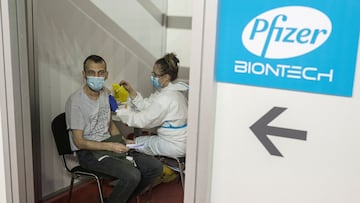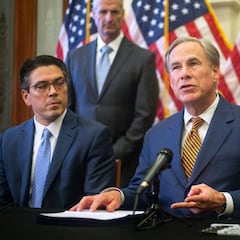Which countries will receive the covid-19 vaccines donated by the US?
President Biden has pledged to donate half a billion doses of coronavirus shots to low- and middle-income nations as part of the COVAX global progamme.


On Thursday President Joe Biden is set to unveil the next stage in the United States’ effort to tackle the pandemic globally, announcing that his administration will donate 500 million doses of covid-19 vaccines over the next year.
The move comes after Biden had faced increased pressure to do more to provide coronavirus vaccines to poorer nations, as the global vaccination effort is weighted heavily in favour of developed countries.
Read more
- Experts warn that vaccines are less effective against the Delta variant
- California work regulator board relaxes mask rules
- Employers can mandate that staff get vaccinated
- Chances of getting covid-19 after being fully vaccinated
Biden arrived in Suffolk, England earlier today as part of an eight-day European trip which he hopes will reassert America’s place on the world stage. The President told those gathered: “We have to end covid-19, not just at home, which we’re doing, but everywhere.”
He added: “There’s no wall high enough to keep us safe from this pandemic or the next biological threat we face, and there will be others. It requires coordinated multilateral action.”
Which countries will be receiving the covid-19 shots as part of this programme?
A White House statement confirmed Biden intention to purchase and donate half a billion doses of the Pfizer-BioNTech vaccines, which will be sent to “92 low- and lower middle-income countries and economies as defined by Gavi's COVAX Advance Market Commitment (AMC) and the African Union.”
The Biden admin is set to announce that it will purchase and donate 500 million doses of the Pfizer COVID-19 vaccine to distribute to about 92 ‘low- and lower middle-income countries’ and the African Union, according to a White House fact sheet on June 10, 2021. pic.twitter.com/wZ5t1j5KRc
— NowThis (@nowthisnews) June 10, 2021
Gavi, also known as the Vaccine Alliance, is a global health partnership which aims to increase access to immunisation across the world. They are overseeing the COVAX scheme which allows wealthier countries to donate doses of covid-19 vaccines to an approved list of 92 low- and middle-income nations:
Low income: Afghanistan, Benin, Burkina Faso, Burundi, Central African Republic, Chad, Congo, Dem. Rep., Eritrea, Ethiopia, Gambia, The Guinea, Guinea-Bissau, Haiti, Korea, Dem. People's Rep., Liberia, Madagascar, Malawi, Mali, Mozambique, Nepal, Niger, Rwanda, Sierra Leone, Somalia, South Sudan, Syrian Arab Republic, Tajikistan, Tanzania, Togo, Uganda, Yemen, Rep.,
Lower-middle income: Angola, Algeria, Bangladesh, Bhutan, Bolivia, Cabo Verde, Cambodia, Cameroon, Comoros, Congo, Rep. Côte d'Ivoire, Djibouti, Egypt, Arab Rep., El Salvador, Eswatini, Ghana, Honduras, India, Indonesia, Kenya, Kiribati, Kyrgyz Republic Lao PDR, Lesotho, Mauritania, Micronesia, Fed. Sts., Moldova, Mongolia, Morocco, Myanmar, Nicaragua, Nigeria, Pakistan, Papua New Guinea, Philippines, São Tomé and Principe, Senegal, Solomon Islands, Sri Lanka, Sudan, Timor-Leste, Tunisia, Ukraine, Uzbekistan, Vanuatu, Vietnam, West Bank and Gaza, Zambia, Zimbabwe
Also eligible: Dominica, Fiji, Grenada, Guyana, Kosovo, Maldives, Marshall Islands, Samoa, St. Lucia, St. Vincent and the Grenadines, Tonga, Tuvalu.
When will the vaccines be distributed?
The US has previously committed to giving away 80 million doses to other nations by the end of June but this mammoth new pledge will take considerably longer to be released.
Related stories
The first tranche of the Pfizer/BioNTech vaccines will start shipping in August 2021, with 200 million doses scheduled to be delivered by the end of the year. The next 300 million doses will be delivered in the first half of 2022.
#Pfizer CEO @AlbertBourla talks #vaccine production and distribution ahead of the recent announcement that the US will purchase and donate 500 million doses.
— Eurasia Group (@EurasiaGroup) June 9, 2021
"These are doses not for the rich, not for the poor, not for the East, not for the West...these are doses for all." pic.twitter.com/2DbwImpOPO
The New York Times reports that the Pfizer deal was agreed at cost price, with the pharmaceutical giants setting a “not for profit” price. Jeffrey D. Zients, the White House official overseeing the US’ global vaccination strategy, said Biden would “rally the world’s democracies around solving this crisis globally, with America leading the way to create the arsenal of vaccines that will be critical in our global fight against covid-19.”

